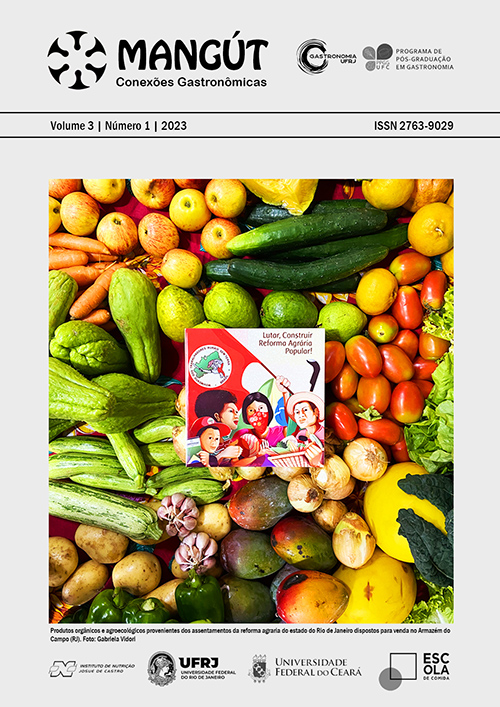Food and memory: the issue of regional cuisine patrimonialization
DOI:
https://doi.org/10.70051/mangt.v3i1.58006Keywords:
Gastronomy, Collective memory, Belonging, Community, Patrimonialization.Abstract
Through the study of eating habits and heritage processes we have access to various manifestations of knowledge and practices of each community and the processes of (re)affirmation of regional cuisine. In this paper we will approach the relationship between food and memory and also how the patrimonialization of local gastronomic dishes can be, or not, influenced by memory or simply by marketing issues. We ask ourselves to what extent the processes of food heritage refer to the memories, doings, and particular knowledge of the population in question? In this text, we seek to understand the processes of patrimonialization of culinary preparations and, for this, we will use as an example the case of the chicken stuffed dish, in the city of Santa Cruz do Sul, in Vale do Rio Pardo/Rio Grande do Sul. As methodology, field research was used with the support of semi-structured interviews carried out with six women, with the support of a field diary, official documents, and reports. The method for analyzing the narrative memory documents was based on Textual Discourse Analysis. By exploring the wealth of information in the narratives and documents, it was possible to understand that identities and cultural heritages may not respond to market discourses, but rather to the ways of being, living of communities, mediated by memory as a device of popular praxis.
Downloads
Published
Issue
Section
License
Copyright (c) 2023 Everton Luiz Simon, Alini Luza Morais

This work is licensed under a Creative Commons Attribution 4.0 International License.
Autores que publicam nesta revista concordam com os seguintes termos:
- Autores mantém os direitos autorais e concedem à revista o direito de primeira publicação, com o trabalho simultaneamente licenciado sob a Licença Creative Commons Attribution que permite o compartilhamento do trabalho com reconhecimento da autoria e publicação inicial nesta revista.
- Autores têm autorização para assumir contratos adicionais separadamente, para distribuição não-exclusiva da versão do trabalho publicada nesta revista (ex.: publicar em repositório institucional ou como capítulo de livro), com reconhecimento de autoria e publicação inicial nesta revista.
- Autores têm permissão e são estimulados a publicar e distribuir seu trabalho online (ex.: em repositórios institucionais ou na sua página pessoal) a qualquer ponto antes ou durante o processo editorial, já que isso pode gerar alterações produtivas, bem como aumentar o impacto e a citação do trabalho publicado (Veja O Efeito do Acesso Livre).



